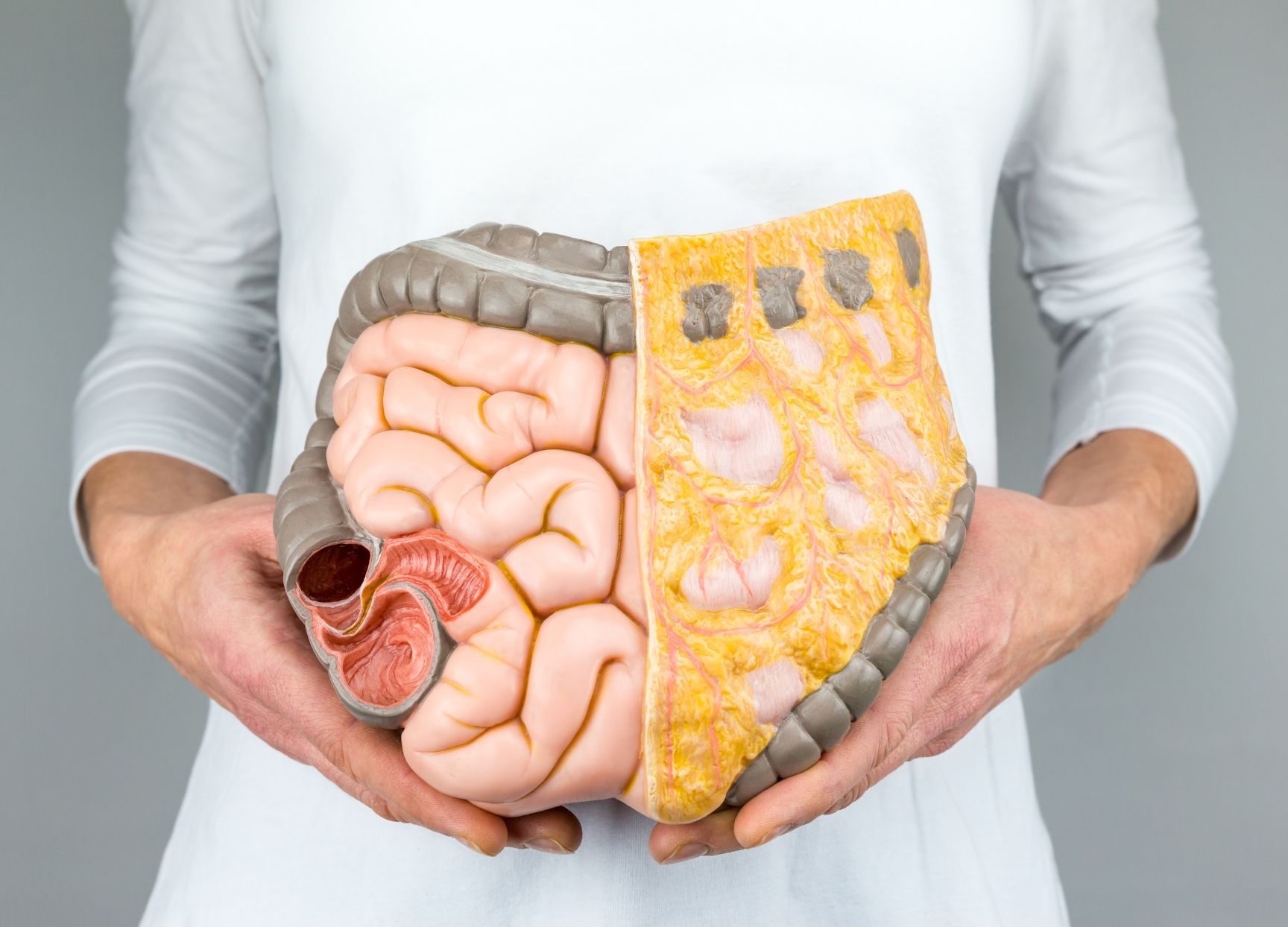Ulcerative Colitis is a disease that creates ulcers in your digestive system, specifically the colon and rectum, where your stools are stored. When these ulcers grow, it can lead to bleeding and painful movements.
What are the signs and symptoms of Ulcerative Colitis?
Ulcerative Colitis is an inflammatory bowel disease (IBD) that affects the lining of the colon and rectum. It is a disease which happens over a long period of time – as a result, some people feel as though it’s the culmination of a few problems, rather than an instant warning sign to see a doctor. As an IBD with no definite cure, knowing the signs and symptoms a patient has are vital for specialists to determine what solutions will be most beneficial. At OneWelbeck we help treat patients with Ulcerative colitis through a patient-led treatment plan attuned to each patient’s unique needs. If you are at risk of Ulcerative Colitis, it is important to know the common signs to look out for.

What exactly is Ulcerative Colitis doing to the body?
What are some common signs of Ulcerative Colitis?
The most common signs of the disease include:
- Diarrhoea
- Blood in the stool
- The sudden need to go to the toilet
- Not being able to pass a movement when you feel you’re going to
- Pain around the rectum throughout the day
- Cramping for prolonged periods
What are the less common symptoms of ulcerative colitis to know about?
Some people may also experience the following if they have ulcerative colitis:
- Fatigue for no clear reason
- Sways in appetite that don’t match your routine
- Weight loss
What happens when someone gets Ulcerative Colitis?
On top of the symptoms just mentioned, a person may start getting mouth ulcers, uncomfortable swelling and/or pain in the joints.
What are the warning signs to see a doctor?
You should always see your doctor as soon as possible if you experience any of the symptoms of ulcerative colitis listed above.
What will a doctor want to know?
If your doctor at OneWelbeck thinks you may have Ulcerative Colitis, they will want to carry out a full physical to see if associated problems are linked to a potential diagnosis.
Because this is a disease centred around bowel movements, you will be asked to give a stool sample and possibly a blood test as well. This is usually done to make sure a patient doesn’t likely have a stomach or bowel infection.
What other tests can a patient expect?
If it warrants further investigation, your doctor may carry out a sigmoidoscopy or colonoscopy to get a clear idea of the affected areas and what state a patient is in.
How is someone with Ulcerative Colitis treated at OneWelbeck?
Patients who come to our clinic will meet with one of our leading digestive health specialists who may carry out further tests to get a full understanding of how the illness is affecting you. On this basis, your doctor will advise a dedicated prescription and explain the best course of action for important lifestyle changes you can make.
With something like colitis, it’s all about giving the body the best chance possible to alleviate the symptoms and retain a good quality of life. This is especially the case if a patient is prone to severe flare-ups and finds that corticosteroids and immunosuppressants don’t have the desired effect.
Meet our team of dedicated digestive health specialists and find out how they help patients with Ulcerative Colitis.
Contact OneWelbeck
Want to know more about ulcerative colitis and how we help patients with digestive problems? Please get in totouch with us here, and we’ll be happy to discuss how our specialists can help you.
Overview
What exactly is Ulcerative Colitis doing to the body?
What are some common signs of Ulcerative Colitis?
What are the less common symptoms of ulcerative colitis to know about?
What happens when someone gets Ulcerative Colitis?
What are the warning signs to see a doctor?
What will a doctor want to know?
What other tests can a patient expect?
How is someone with Ulcerative Colitis treated at OneWelbeck?
Contact OneWelbeck
How OneWelbeck
can help
Here at OneWelbeck, we have a team of gastroenterology specialists, state of the art facilities and diagnostics, and highly competitive financial packages for self-funding patients as well as those with private health care.
Digestive Health